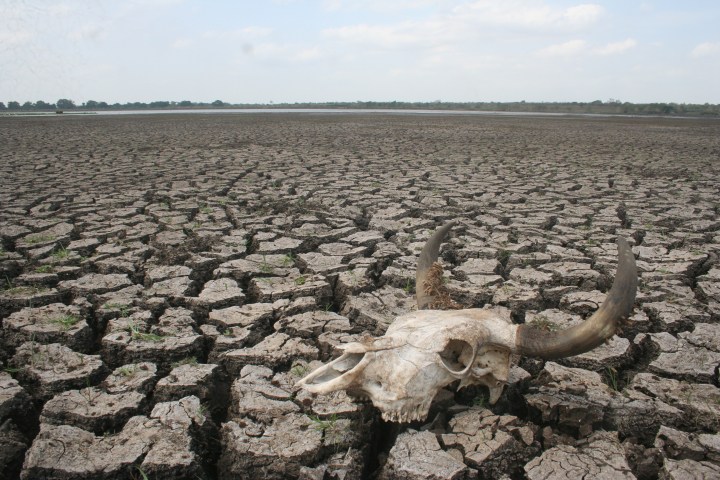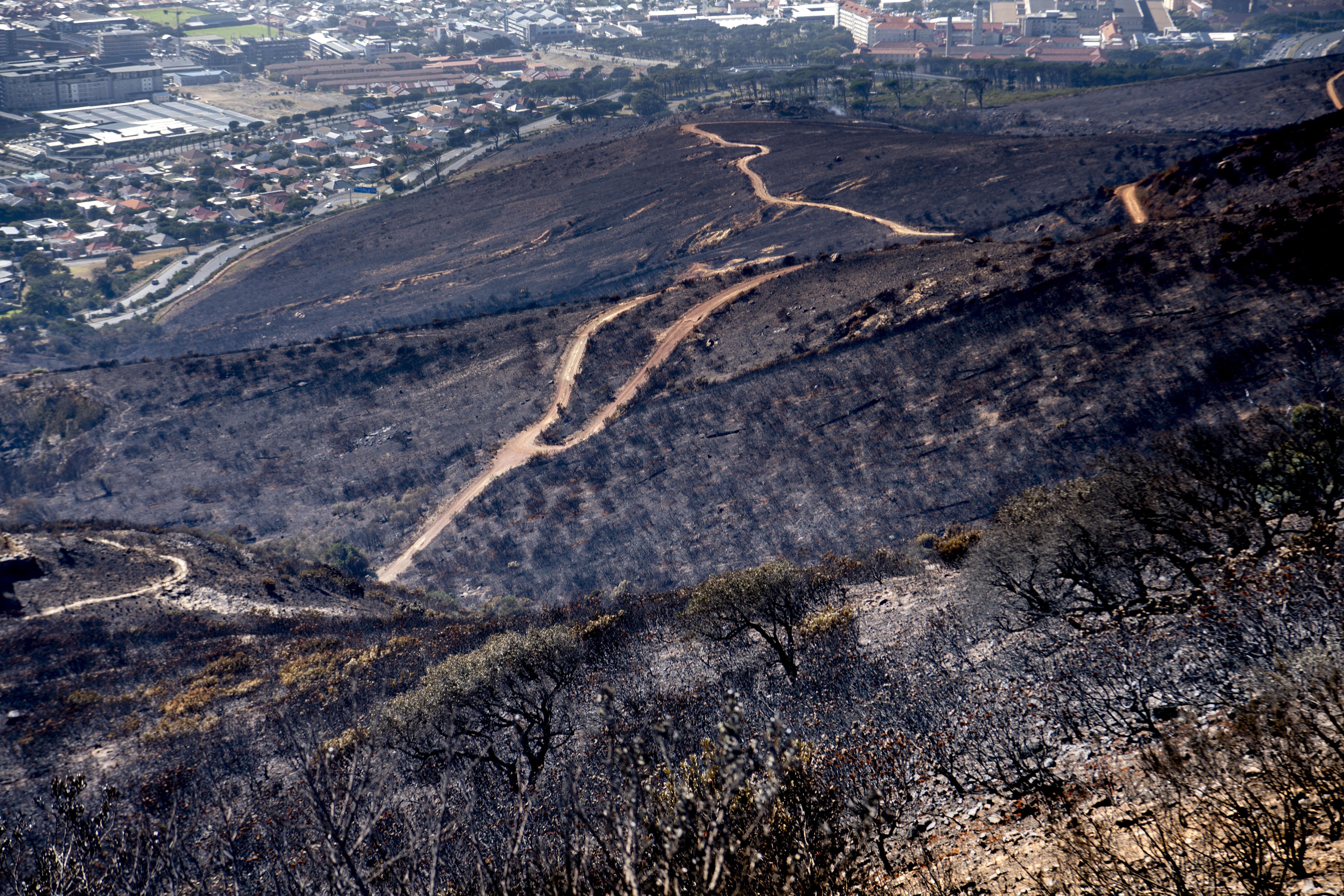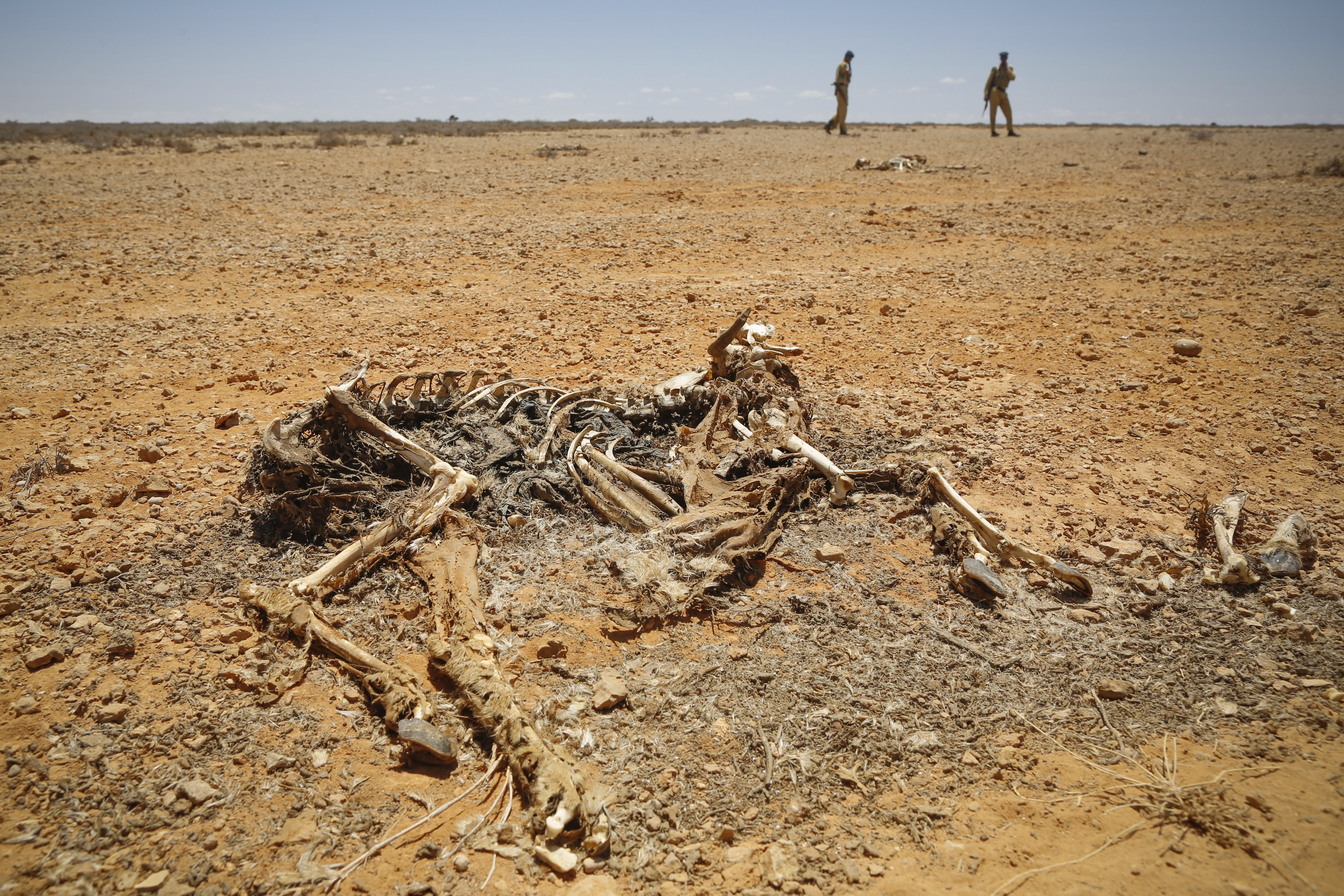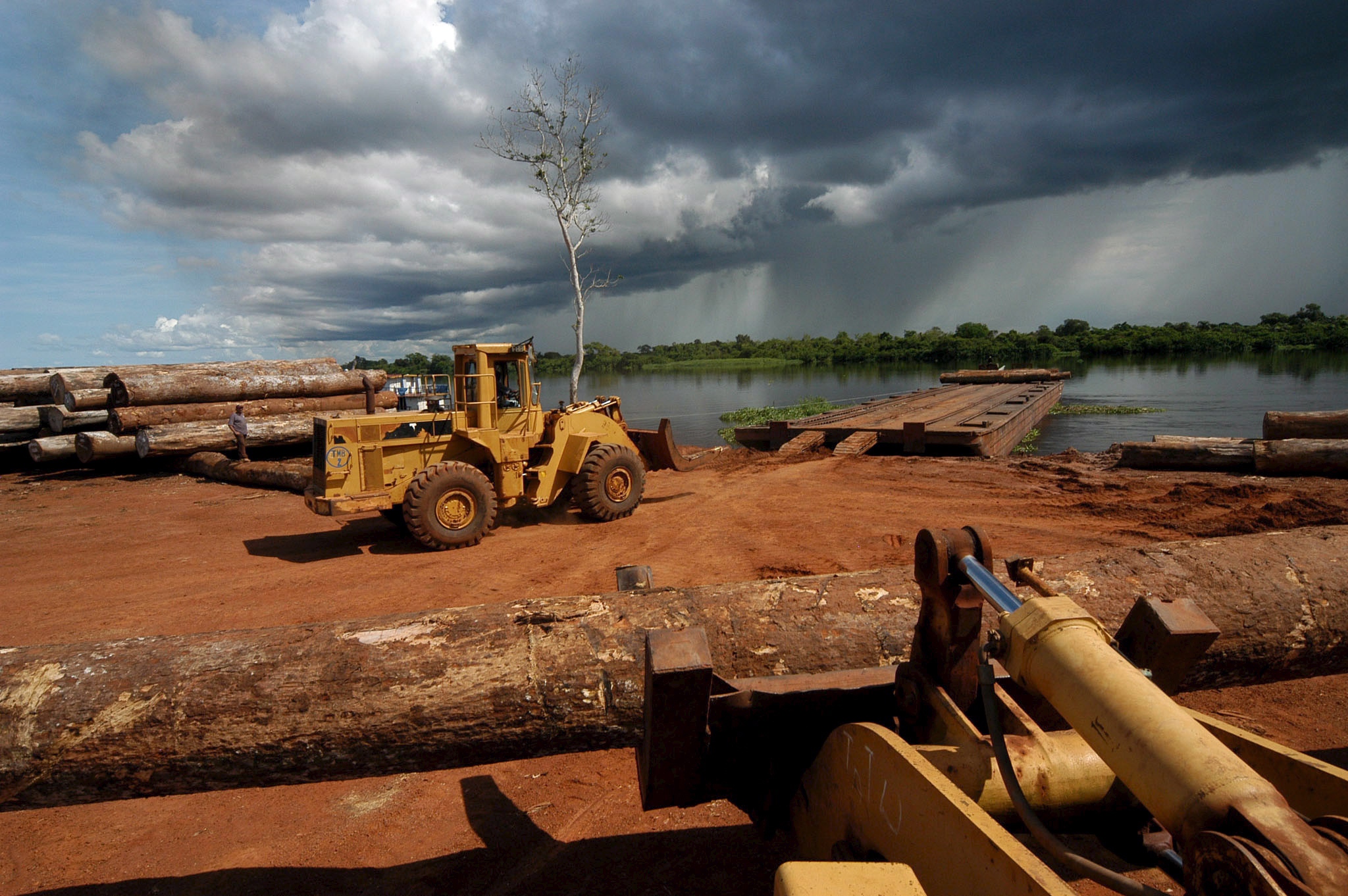CONFERENCE OF THE PARTIES
African Group of Negotiators head insists Africa climate change priorities need critical focus at COP27

Vulnerable nations including Least Developed Countries and Small Island Developing States, appear to be leading in climate ambition, ahead of their dawdling developed counterparts.
Africa is the most vulnerable continent in the face of climate change, according to team leader of the African Group of Negotiators Expert Support (Agnes), Dr George Wamukoya. He stresses the importance of formulating a strong position for Africa to present at COP27, taking place in Egypt in November.
An important step in this process was the 56th session of the Subsidiary Bodies of the United Nations Framework Convention on Climate Change which took place in the German city of Bonn from 6 to 16 June 2022. The Bonn Climate Change Conference marked the first time negotiators had met since November 2021 at COP26 in Glasgow, where the Glasgow Climate Pact was agreed upon.
Shedding light on the outcomes of the meeting, Wamukoya summarised the African position in four key points:
- developed countries should raise their climate ambition;
- adaptation is a priority for Africa;
- Africa’s climate vulnerability must be recognised; and
- a need to focus on the continent’s agricultural sector.
Getting to grips with Africa’s priorities
If countries can cut global emissions to “net zero” by 2050, we may still have a chance to bring global warming below 1.5℃ in the second half of this century and avert global disaster in the form of heat waves, flooding, wildfires, widespread crop failure, coral bleaching and sea level rise.
The Conference of the Parties, or COP for short, refers to the gathering of the 196 countries, plus the European Union, that ratified the 1992 United Nations Framework Convention on Climate Change (UNFCCC) treaty. The annual event sees country delegations engage in days of negotiations and exchanges to adopt positions, make new pledges and join new initiatives to tackle climate change by achieving net zero.

Staff from Table Mountain National Park, NCC, and Working on Fire monitor the fire area on the slopes of Table Mountain for any possible flare-ups of the wildfire on 21 April, 2021 in Cape Town, South Africa. (Photo: Gallo Images/Die Burger/Jaco Marais)
The African Group of Negotiators (AGN) has been representing the common interests of African nations as a bloc since 1995’s first COP in Berlin, Germany, ensuring that Africa’s voice on climate issues is heard over competing interests.
Since 2015 they have been supported by Agnes, who provide scientific evidence to inform the African position by facilitating the exchange of ideas between experts and negotiators. Agnes has been working with Oppenheimer Generations Research and Conservation (OGRC) as well as researchers from their partner programme, Future Ecosystems for Africa (FEFA), to incorporate the latest science on African environments into Africa’s COP27 position.
Shouldering responsibility for climate change
Prior to the last COP, the UNFCCC Secretariat’s assessment on all updated nationally-determined contributions (NDCs) — each nation’s promised actions to reduce greenhouse gas emissions — put the trajectory of global temperature increase at 2.7℃ by the end of the century, far overshooting the Paris Agreement’s 1.5℃ target.
Raising the “ambition” to cut emissions remains critical to success. But at SB56 a familiar question arose, “Who is that ambition for; developing countries or developed countries who have historical responsibility?” said Wamukoya.
Countries can raise their ambition by committing to improved NDCs and climate finance. Although developed countries promised in 2009 to jointly contribute $100-billion a year by 2020 to support climate action in developing nations, that goal has not been reached.
In fact, vulnerable nations including Least Developed Countries and Small Island Developing States, appear to be leading in climate ambition, ahead of their dawdling developed counterparts.
Looking ahead to COP27, Africa’s position is that developed countries should raise their ambition. Currently, Africa is contributing very low greenhouse gas emissions compared to other continents — just under 4% of total global emissions.
African negotiators at COP27 will maintain that the responsibility lies with developed nations — who are responsible for 79% of historical carbon emissions — to rectify their substantial role in causing climate change.

A carcass of an animal that died of a severe drought is seen near a pastoralists’ settlement in Bandarbeyla district in Somalia’s semi-autonomous region of Puntland, Somalia, 24 March, 2017. According to locals, the area has seen only two days of rain in more than a year. (Photo: EPA/Dai Kurokawa)
Adaptation remains a priority for Africa
Climate action can fall into one of two categories, “adaptation”, referring to actions taken to prepare for and adjust to the effects of climate change as well as those predicted in the future; or “mitigation”, which are efforts to reduce or prevent the emission of greenhouse gases.
Adaptation is a priority for Africa and other developing countries, whose vulnerabilities mean they will carry the costs of climate change despite having contributed the least in causing it. For these nations, financing for climate adaptation is critical. Currently, less than 20% of climate finance is going to adaptation compared to mitigation actions.
Visit Daily Maverick’s home page for more news, analysis and investigations
“[Africa and other developing countries] are having to use national resources which would have been used for other pressing issues (i.e. job creation, sanitation and housing), to deal with climate change. I think our countries will have a big challenge in meeting normal development activities at the same time as addressing climate change — we need adequate climate adaptation financing,” emphasised Wamukoya.
Although it was agreed in Glasgow that the Adaptation Fund would double, the source of financing, and how funds can be accessed remain in question.
However, assessing adaption is a far more nebulous task than monitoring progress towards preventing a 1.5℃ temperature rise. Determining indicators to track progress on the three goals — enhancing adaptive capacity, building resilience, and reducing vulnerability — remains a challenge due to their qualitative nature.

In this file picture dated 26 October 2006, machines load logs onto barges for transport down the Congo river in Ndobo, in the Democratic Republic of Congo. Logging and slash and burn agricultural practices threaten the delicate equatorial ecosystem of the rain forests in the Congo. (Photo: EPA/Ricky Gare)
Africa is vulnerable
“All the best science available is showing that Africa is the most vulnerable continent,” stated Wamukoya, and therefore requires a high level of investment in adaptation to cushion itself from the adverse impacts of climate change. The continent faces high levels of adverse climate change effects but has inadequate financial capacity to respond.”
A key element of the African position is to gain recognition that Africa is highly vulnerable and needs financial support to deal with the effects of climate change. “We can only do this by showcasing African stories and narratives,” said Wamukoya, to provide evidence to convince international negotiators of Africa’s needs.
These stories include case studies of natural disasters wreaking havoc across the continent. After tearing through Madagascar, Cyclone Idai hit Mozambique on 14 March 2019, before moving inland across Zimbabwe. Severe flooding and high winds peaking at 280 km/h flattened homes and destroyed crops. Over 1,000 lives were lost, hundreds of thousands of people were displaced, 2.6 million were left in need of humanitarian services and an estimated $2.2-billion in damage was caused.
Cyclone Idai may be one of the worst disasters recorded in the southern hemisphere. Not six weeks later, a second tropical cyclone, “Kenneth”, devastated the region yet again, marking the first time in recorded history that two strong tropical cyclones had hit Mozambique in one season. One year later, over 100,000 Mozambiquans were still living in temporary shelters.
Further north, below the Sahara in the arid Sahel region, temperatures are rising 1.5 times faster than in the rest of the world. Farmers and pastoralists here have seen their crops wither away in intense droughts that bake the earth until it is unable to absorb the heavy rainfall, also a result of climate change, causing flooding. Climate change has created conditions ripe for an eruption of social conflict over land and water.

A polluted stream runs through the urban area of Ocean View in Cape Town, South Africa, 8 March 2011. Lack of infrastructure in the rapidly expanding lower income urban areas across South Africa has caused severe water management issues for local governments. The flow of urban streams and storm water drains is blocked in many areas with high levels of pollution due to the lack of waste removal services. (Photo: EPA/Nic Bothma)
Securing future farming
Despite having 60% of the planet’s arable land, Africa remains a net importer of food. According to Agnes reports, agriculture is the biggest land-based economic sector for most countries in Africa, accounting for at least 20% of their GDP. The sector employs over 50% of the continent’s workforce and contributes about 30% of the value of exports.
Africa’s agriculture is rain-fed, which means that success for this important sector is dependent on climate. In the wake of extreme weather events, like those playing out in the Sahel, farmers and pastoralists are left helpless.
Agriculture has been on the agenda for UNFCCC discussions since 2011. “Since then, we’ve been having technical discussions to understand how agriculture plays out in the climate system”, said Wamukoya, a lead negotiator on agriculture.
“That roadmap we’ve given ourselves came to an end last year, so this year at COP27 we must get a new position to see how we move agriculture forward”. African agricultural investment has largely been received from the Official Development Assistance (ODA), which has been decreasing. “The only way we can transform our agricultural systems is by attracting climate finance from public and private sectors,” said Wamukoya.
According to him, the aim is to develop guidance and leadership on how African agriculture should be dealt with, given the need to safeguard this vulnerable sector for food security.
In just over three months the world will look to COP27 to negotiate our future against a ticking clock. With the event taking place on African soil this year, this is a valuable opportunity to gain climate wins for the continent. DM/OBP
This article was commissioned by Jive Media Africa, strategic media partner of Oppenheimer Generations Research and Conservation.




















 Become an Insider
Become an Insider
Comments - Please login in order to comment.